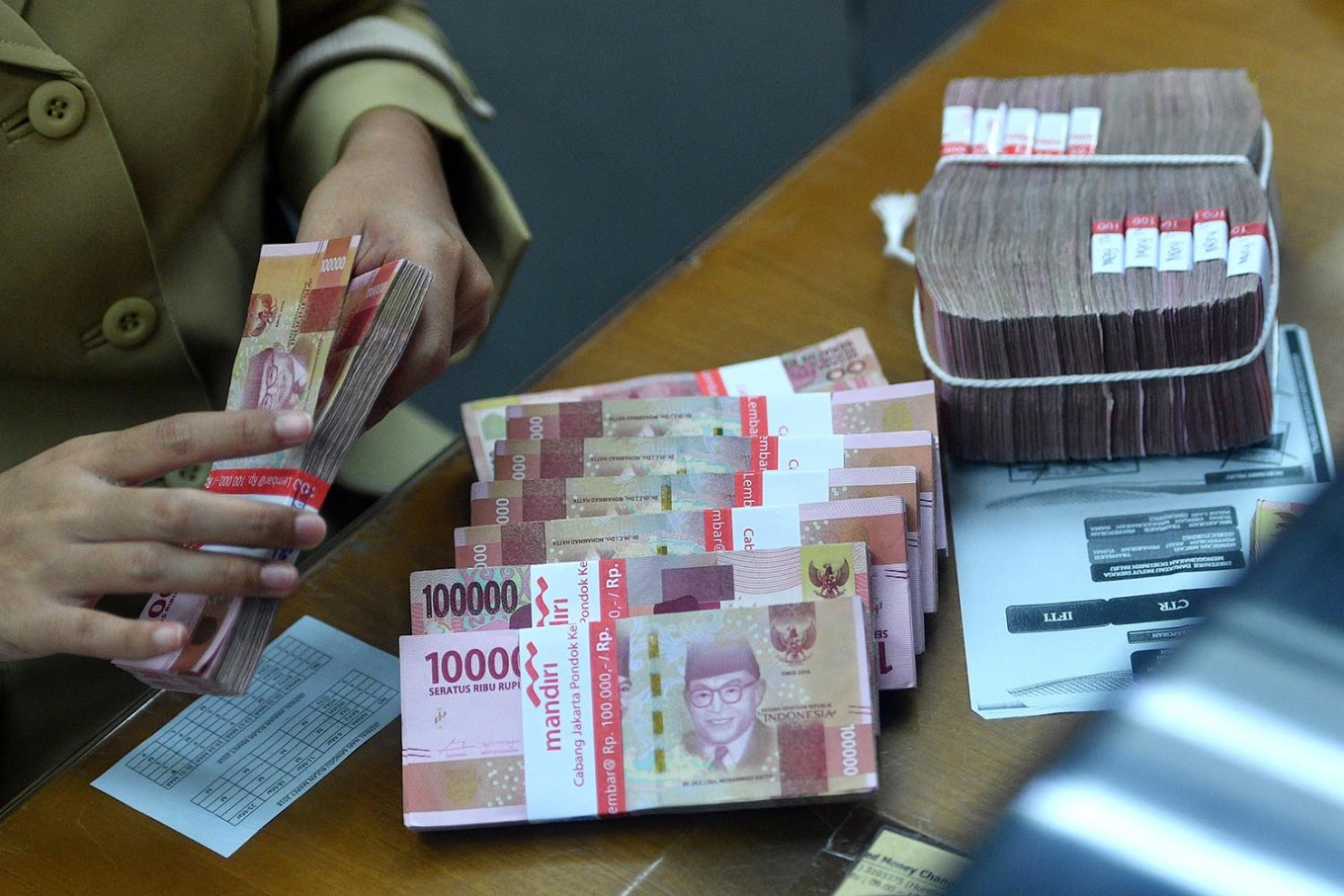Popular Reads
Top Results
Can't find what you're looking for?
View all search resultsPopular Reads
Top Results
Can't find what you're looking for?
View all search resultsMore rate hikes may be in store for Indonesia to halt rupiah
Change text size
Gift Premium Articles
to Anyone
I
ndonesia’s second interest-rate increase in two weeks may be followed by more policy tightening to stem a slide in the rupiah amid an ongoing rout in emerging markets.
While the rupiah strengthened for a fifth day on Thursday, the central bank isn’t in the clear yet. Much will depend on geopolitical events -- from snap elections in Italy to ongoing trade disputes between the US and China -- and how much further the US Federal Reserve will tighten monetary policy. Those have added to market jitters after a rout in emerging markets pushed the rupiah to its weakest level since 2015 last week.
“We don’t want to declare being out of the woods quickly,” said Vishnu Varathan, head of economics and macro strategy at Mizuho Bank Ltd. in Singapore. “Watch this space. We can’t take our eyes off the wobbles in the markets right now.”
The rupiah rose to the highest in a month on Thursday after holding gains below the 14,000 level following the rate announcement. The currency has pared its decline this year to 2.4 percent against the dollar.
Less than a week in office, Governor Perry Warjiyo followed through with a pledge to be “pre-emptive” and to use monetary policy to stabilize the exchange rate by raising the benchmark rate by 25 basis points to 4.75 percent on Wednesday.
The move came at a special policy meeting held a month before its regular scheduled one, allowing the central bank to hike before the Fed’s expected tightening in June.
Warjiyo also flagged the possibility of further rate increases, depending on how domestic and global developments play out and how aggressive the Fed is in tightening policy. The central bank is open to hold additional monetary policy meetings if the situation demands, Deputy Governor Dody Budi Waluyo said on Wednesday.
Indonesia has been one of the hardest hit emerging markets in Asia because of its reliance on foreign inflows to finance its current-account deficit. Foreign ownership of government bonds is also relatively high at about 38 percent, making the economy vulnerable to sharp swings in global sentiment.
The currency “is the biggest concern among foreign investors,” said Evan Lie Hadiwidjaja, head of research at PT Sinarmas Sekuritas. “Currency stability has to come first, especially given the uncertainties and volatilities in the global market.”
Southeast Asia’s largest economy hasn’t been alone in defending its currency against a resurgent dollar and rising US yields. Turkey raised interest rates by 300 basis points at an emergency meeting last week, while crisis-hit Argentina pushed up its benchmark rate to 40 percent earlier in May. The Philippine central bank raised its rate on May 10 for the first time since 2014.
For Indonesia, “a couple more rate hikes seems likely,” Krystal Tan, an economist in Singapore at Capital Economics Ltd., wrote in a May 30 note. “A sustained rupiah sell-off would be a concern for the central bank given Indonesia’s relatively high level of foreign currency debt,” which she estimates at about 28 percent of GDP.










